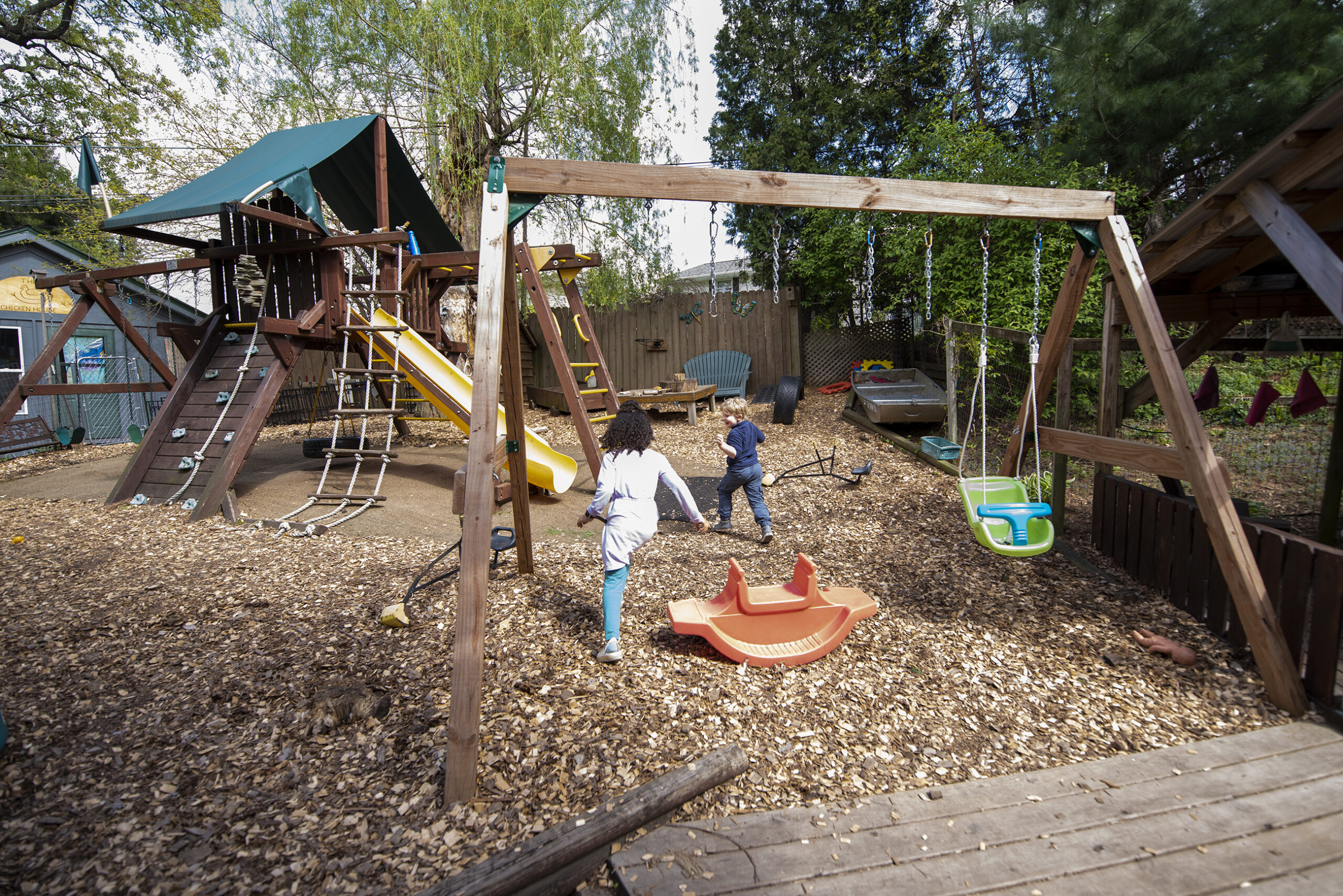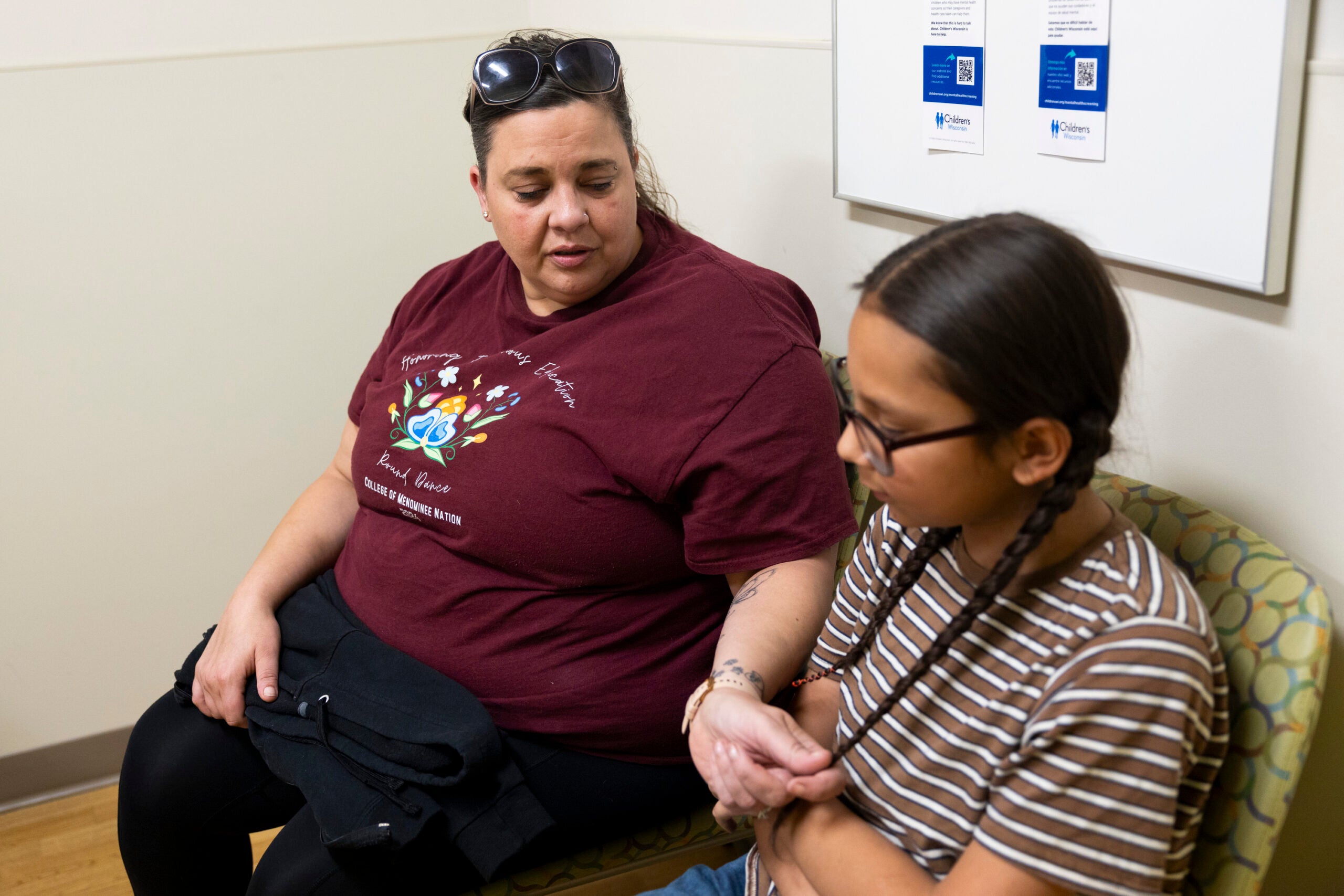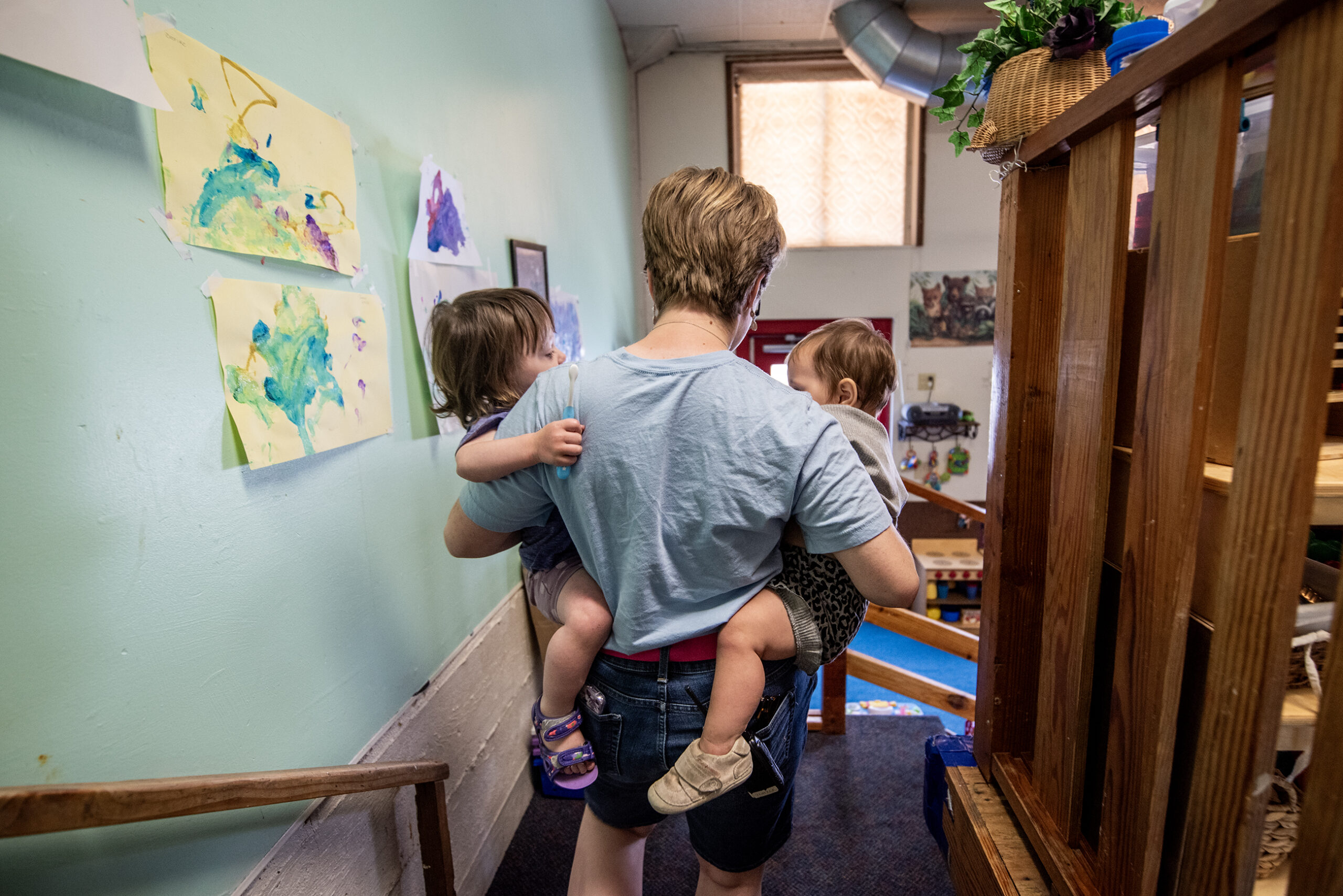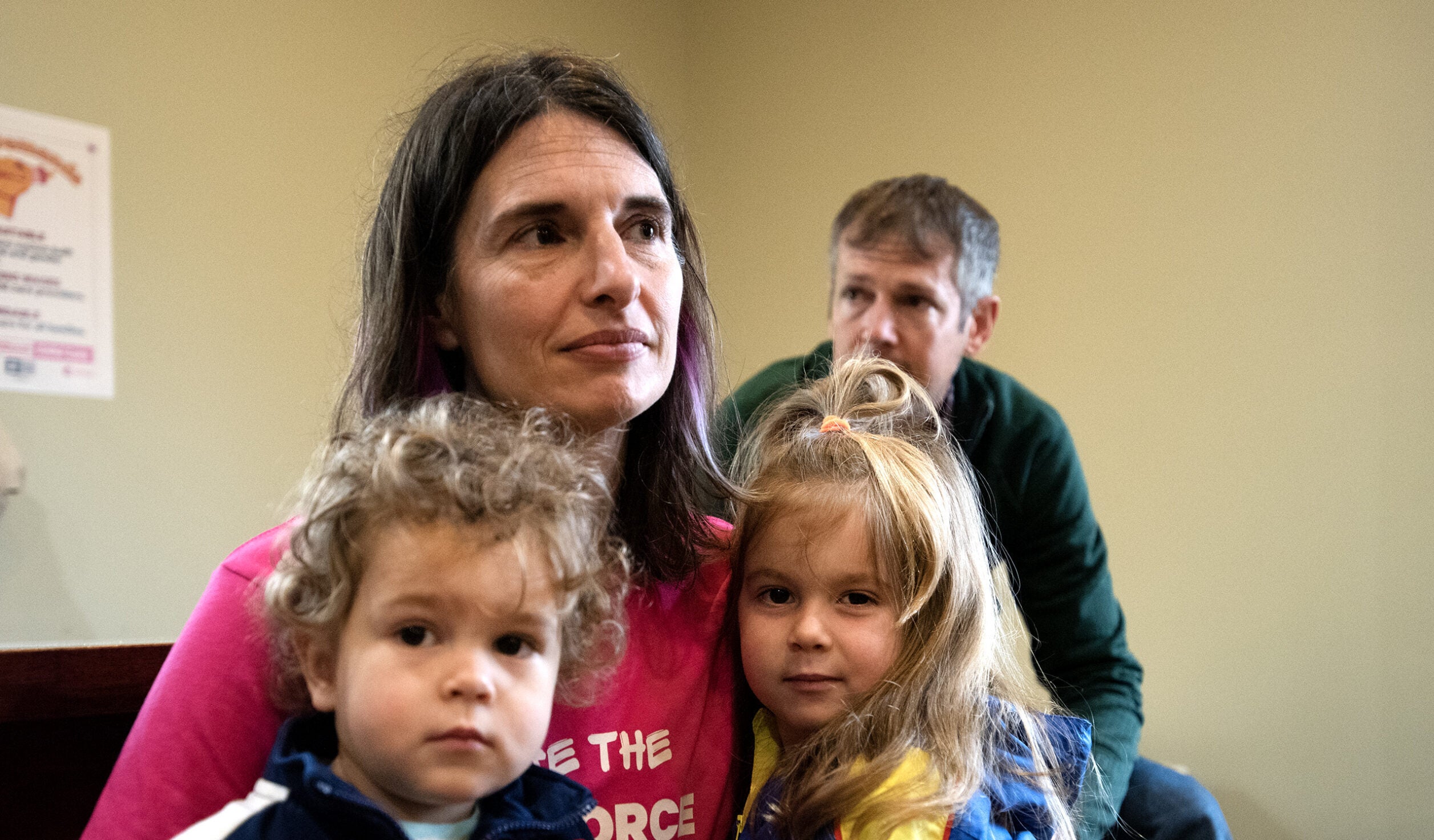The Wisconsin Department of Children and Families denied grants to more than 10 percent of the Wisconsin child care providers who applied for its latest round of federal relief funds, including some who had received funding in previous distributions.
DCF officials have disbursed nearly $236 million in federal COVID-19 recovery money to child care providers through three Child Care Counts payment programs.
The funding is split into two categories — operational funds on a per-child basis and staff recruitment and retention funds on a per-employee basis. Child care employee wages lag far behind those of teachers and even many retail jobs, averaging $10.66 per hour in Wisconsin.
News with a little more humanity
WPR’s “Wisconsin Today” newsletter keeps you connected to the state you love without feeling overwhelmed. No paywall. No agenda. No corporate filter.
In the most recent round of grants, 2,991 providers applied for one or both categories of funding, and 305 were denied. By contrast, only eight of 5,390 total applications were denied between the two fall 2020 grant disbursements and 63 of 3,067 in the spring 2021 program. DCF officials didn’t explain the reasons for denial, but many providers have expressed frustration that they were denied because they hadn’t met new federal and state background check requirements.
“(DCF) say one thing about supporting us yet their actions are completely different,” said Brooke Skidmore, director of The Growing Tree Early Learning Center in New Glarus and co-founder of Wisconsin Early Childhood Action Needed. “For DCF to think that it was OK to take these funds from providers that have worked this whole time, that have been open, for teachers who have sacrificed their health along with their family’s and take all those funds away is very harmful.”
Skidmore said she applied for about $20,000 in grants in the most recent round of funding. Her child care center received grants in previous distributions, which allowed her to give her teachers a raise — something she planned to keep paying for using the state grants. Keeping her doors open during the pandemic has put The Growing Tree tens of thousands of dollars in the red since they’ve had to keep some of their rooms closed or below capacity due to staffing shortages.
Initially, she said, she was informed the funds were denied because one teacher was out of compliance. When she checked the DCF portal that keeps track of compliance at child care centers a few days later, two more employees showed up as needing fingerprint-based background checks.

Before 2019, child care providers were required to do a name-based background check on each of their employees. Under changes to the federal Child Development Block Grant that were initially supposed to be enforced beginning in September 2020, background checks had to be fingerprint-based. Because of the pandemic, that deadline was extended.
DCF officials said the new deadline was June 1, just before the latest round of Child Care Counts payments, which is why some providers who hadn’t gotten fingerprint checks for all their employees — but had received previous funding — were denied.
“There has always been the requirement in our terms and conditions for the (Child Care Counts) payment program to have providers meet state and federal regulations and requirements — and one of those is the background check,” said Gina Paige, deputy communications director at DCF.
Skidmore said denying the entire grant request is an outsized response compared to how DCF typically handles regulation violations.
“Typically with a violation, it’s not a monetary fine or fee, it’s, you receive a letter and you have to respond within a certain time with how you’re going to correct the violation,” she said. “It’s not take $20,000 away because one teacher needs a fingerprint.”
Laura Klingelhoets who runs Stepping Stones Children’s Center, which has a location in Belgium and one in Cedar Grove, said she was denied funds for her Belgium location because of missing fingerprint records for one employee. However, she said she got a call from the state’s background check unit the week before her denial saying the facility was in total compliance.
“I never even thought to check the portal after that because I thought, well, great, we’re all set,” Klingelhoets said. “All of a sudden I got the denial, and I went on to look and found out one of our staff’s fingerprints hadn’t been done, even though we had sent her like May 24 or 25 to have it done.”
Klingelhoets said she called DCF and other state agencies to clarify that the staff member had gotten her background check, but because they couldn’t find a record of it — and the employee’s own receipt had been lost when her car was totaled on a family trip — there was nothing to be done.
Klingelhoets had received funding from both the previous payment programs and used it to cover overhead expenses like her mortgages, personal protective equipment and staff bonuses.
“I value DCF, and the work that they do, and the background check unit, I support what they’re doing because you have to watch out when you’re working with children,” she said. “But when there’s a glitch, they have to be able to acknowledge that there’s something not right in their process, especially when it costs hundreds of programs (who were denied funding).”
Paige said there isn’t an appeals process for providers who were declined, but if providers think they were denied the funds in error, DCF will look into those and reverse decisions that were made incorrectly.
DCF has been messaging the new requirements to providers since 2018, through a combination of emails, letters, social media campaigns and other public messaging, and targeted reminders to individual providers to let them know which staff members haven’t met the new background check requirements, Paige said. DCF has also granted extensions for employees who couldn’t get their fingerprinting done during the pandemic, either because facilities were closed or because they had a sick family member at home and couldn’t safely visit a fingerprinting facility.
“It’s federal money, and the federal government is requiring that states be in compliance with the requirements under the Child Care Development Block Grant, and so being good stewards of federal funding, we wanted to ensure that this money was going to regulated providers who are meeting those requirements,” said Paige. “We want to ensure that the individuals working in child care are keeping our children safe.”
For some providers, the denial of funds they were counting on hit particularly hard after such a difficult 15 months.
Skidmore, of The Growing Tree, noted that while schools were permitted to close in March 2020, the state encouraged child care centers to stay open to support essential workers. She said they didn’t provide the same kind of personal protective equipment or support that it later did to schools. Additionally, the state waived some regulations, like allowing providers to have a higher ratio of school-aged children to teachers.
“We were asked to stay open when they shut schools down, they shut everything down, they asked people to stay home and yet asked us to stay open,” Skidmore said.
Wisconsin Public Radio, © Copyright 2025, Board of Regents of the University of Wisconsin System and Wisconsin Educational Communications Board.







